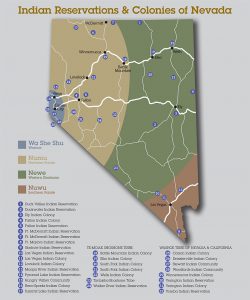MISSING AND MURDERED INDIGENOUS RELATIVES

The true number of missing and murdered Indigenous women and girls in the United States is unknown. There is no state or federal tracking database, and many go unreported due to a distrust of law enforcement. Native American women and girls face murder rates almost three times that of White women overall — and up to 10 times the national average in certain locations, according to a 2021 summary of the existing research by the National Congress of American Indians. More than 80% have experienced violence.
NCEDSV compiles an annual homicide report that highlights statewide data on individuals killed in domestic violence relationships. To ensure an individual has been counted in this report please email: [email protected]
This publication was supported by Grant No. 15JOVW-22-GG-00914-MUMU awarded by the Office on Violence against Women, U.S. Department of Justice. The opinions, findings, conclusions, and recommendations expressed in the publication are those of the author(s) and do not necessarily reflect the views of the Department of Justice, Office on Violence Against Women.
EVENTS
About MMIR
Many cases go cold due to a lack of information about whom to contact for tips or updates regarding the status of MMIR cases. This is unacceptable. We urge those in positions of authority to take action and implement changes that benefit all people equally.
A key issue is the response times to calls for help from our indigenous relatives, which can take up to five hours. These delays and lack of resources lead to cases going cold without updates for families.
This indifference reflects a troubling tolerance for violence against Indigenous relatives, who already face high rates of missing and murdered individuals.
To that, we say, “No more stolen relatives!”
The 4th Annual MMIR Awareness Conference
The 4th Annual MMIR Awareness Conference will be held May 4th – May 6th , 2025 by Newe Waipaipian at the Elko Convention Center in Elko, NV. Every year, this conference is held to address the failed systemic response to missing and murdered Indigenous people and discuss the multiple layers of power-based violence including sexual assault, sex trafficking, domestic violence, suicidality, and mental health care.
March 3, 2022: House Subcommittee on Civil Rights and Civil Liberties hearing on “The Neglected Epidemic of Missing BIPOC Women and Girls”
RESOURCES
Inter-Tribal Council of Nevada Statewide Hotline: 775.722.8794
StrongHearts Native Helpline: 1.844.7NATIVE (762.8483)
NATIVE VOICES - Remember her name

We are not an emergency shelter or a crisis hotline. View a statewide directory of shelters, community-based advocacy, and legal assistance programs.
NEVADA COALITION TO END DOMESTIC AND SEXUAL VIOLENCE (NCEDSV)
This project was made possible by funding from the Administration for Children and Families U.S. Department of Health and Human Services Family Violence Prevention and Services Act Coalition Grant and contributions from readers like you.
NCEDSV NEWSLETTER
Sign up to get NCEDSV news and updates delivered to your inbox.
By submitting this form, you are consenting to receive marketing emails from: . You can revoke your consent to receive emails at any time by using the SafeUnsubscribe® link, found at the bottom of every email. Emails are serviced by Constant Contact

